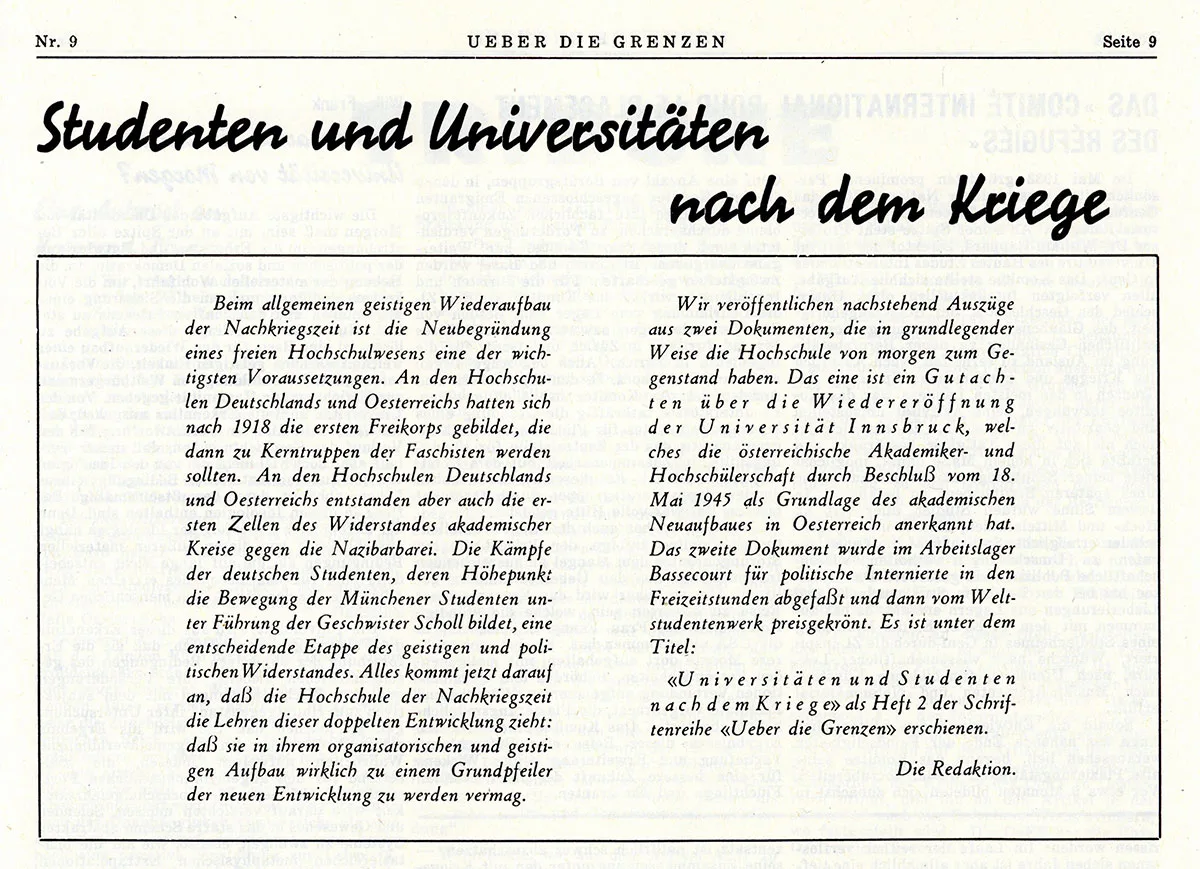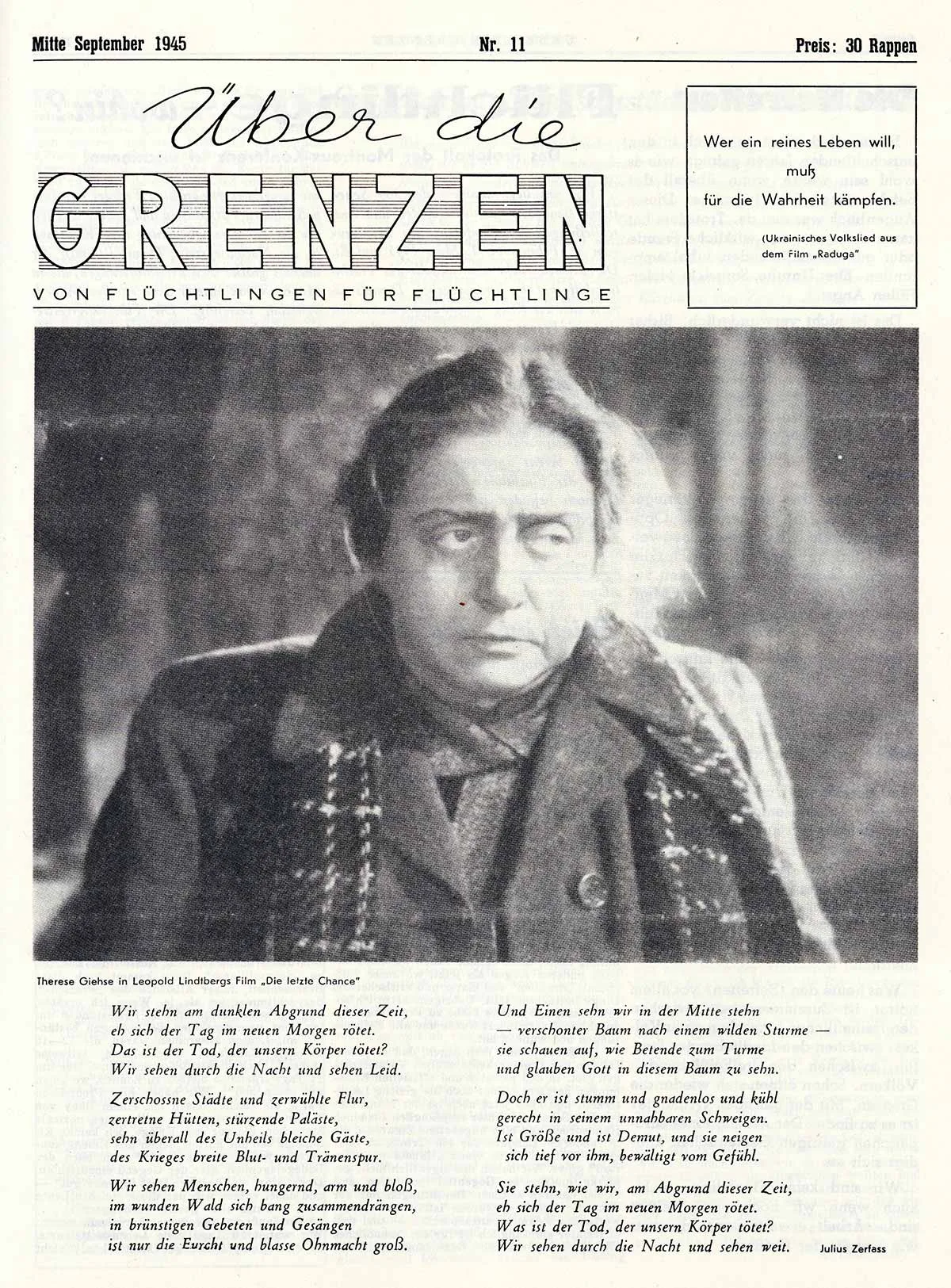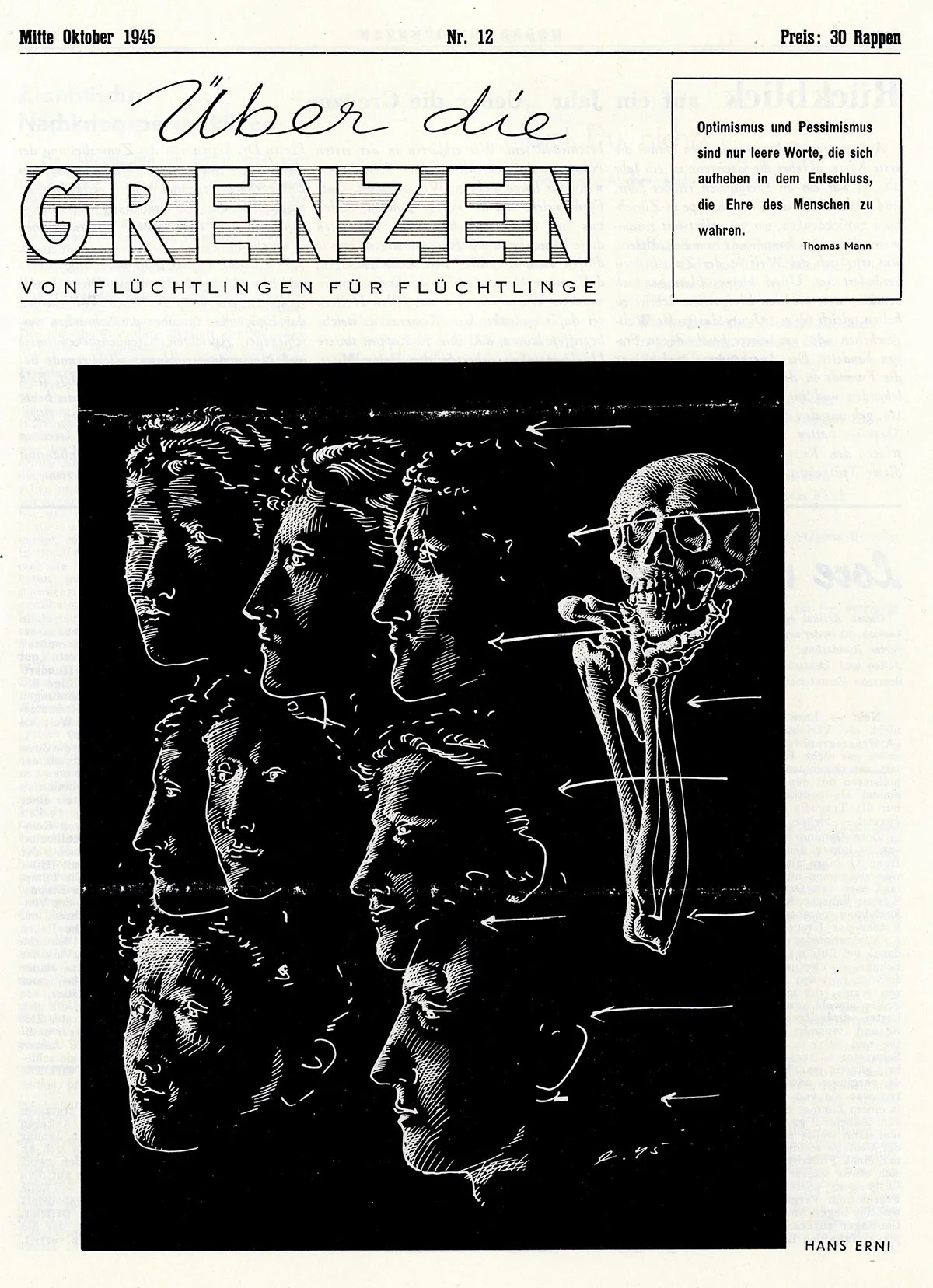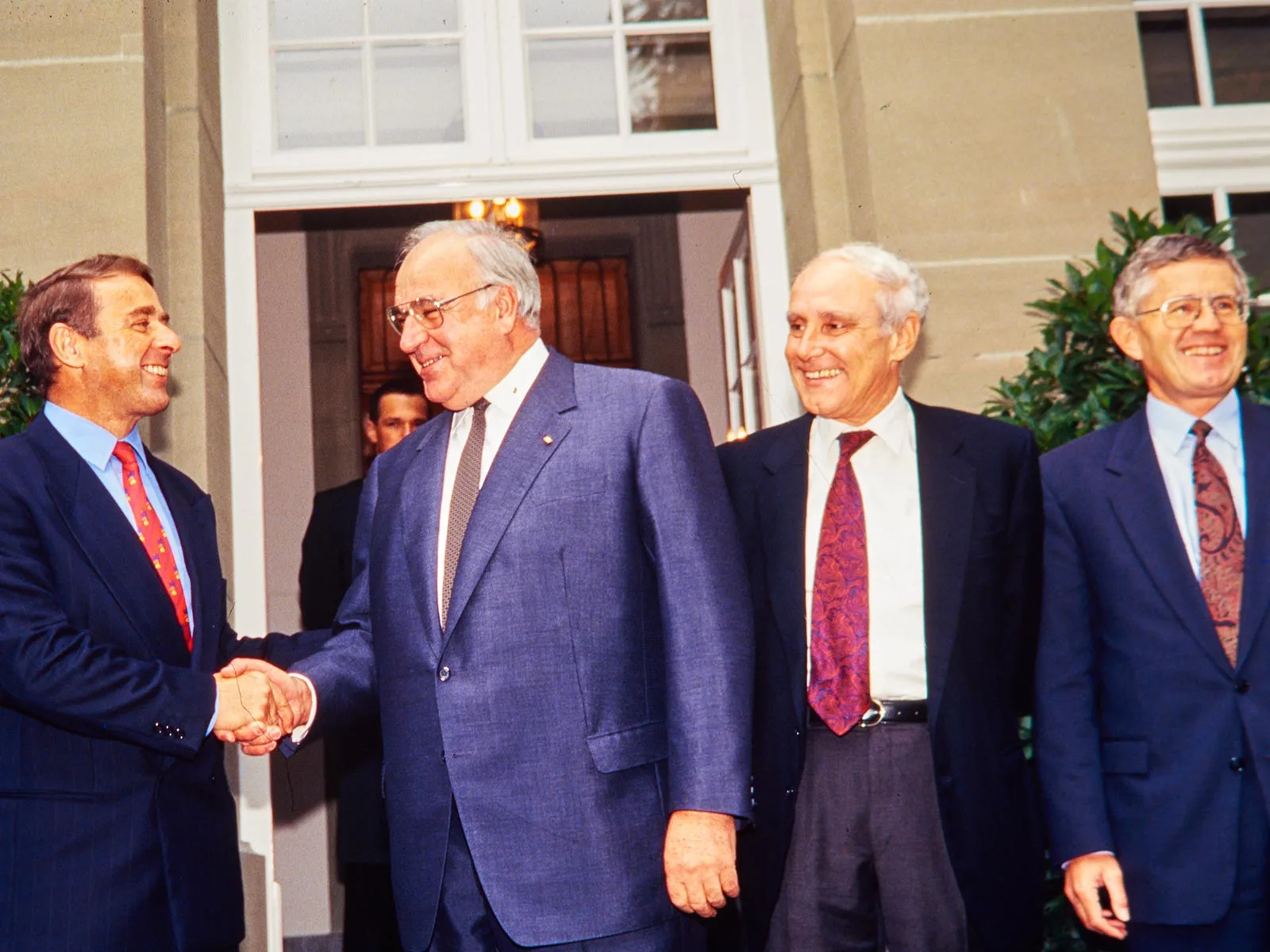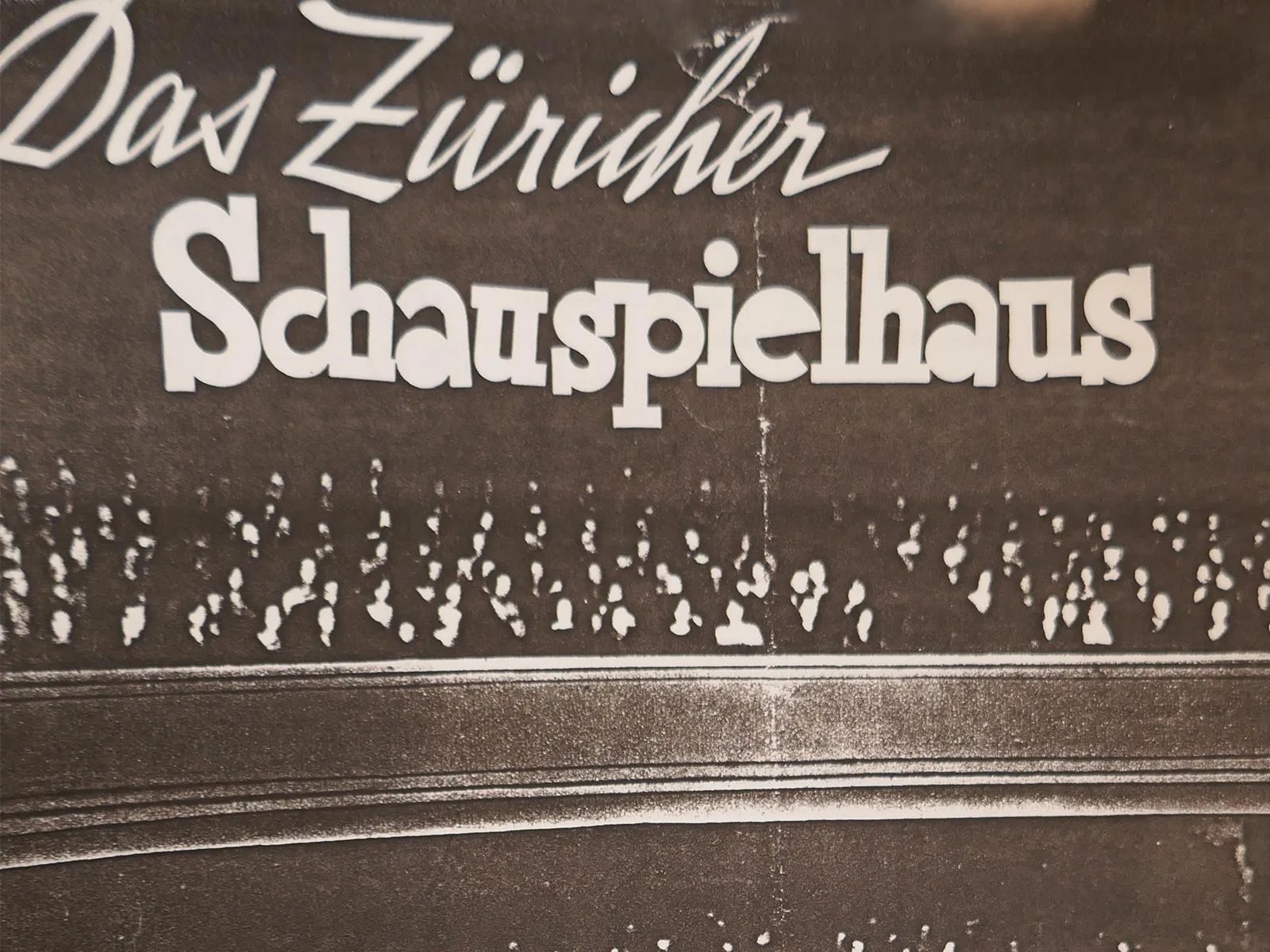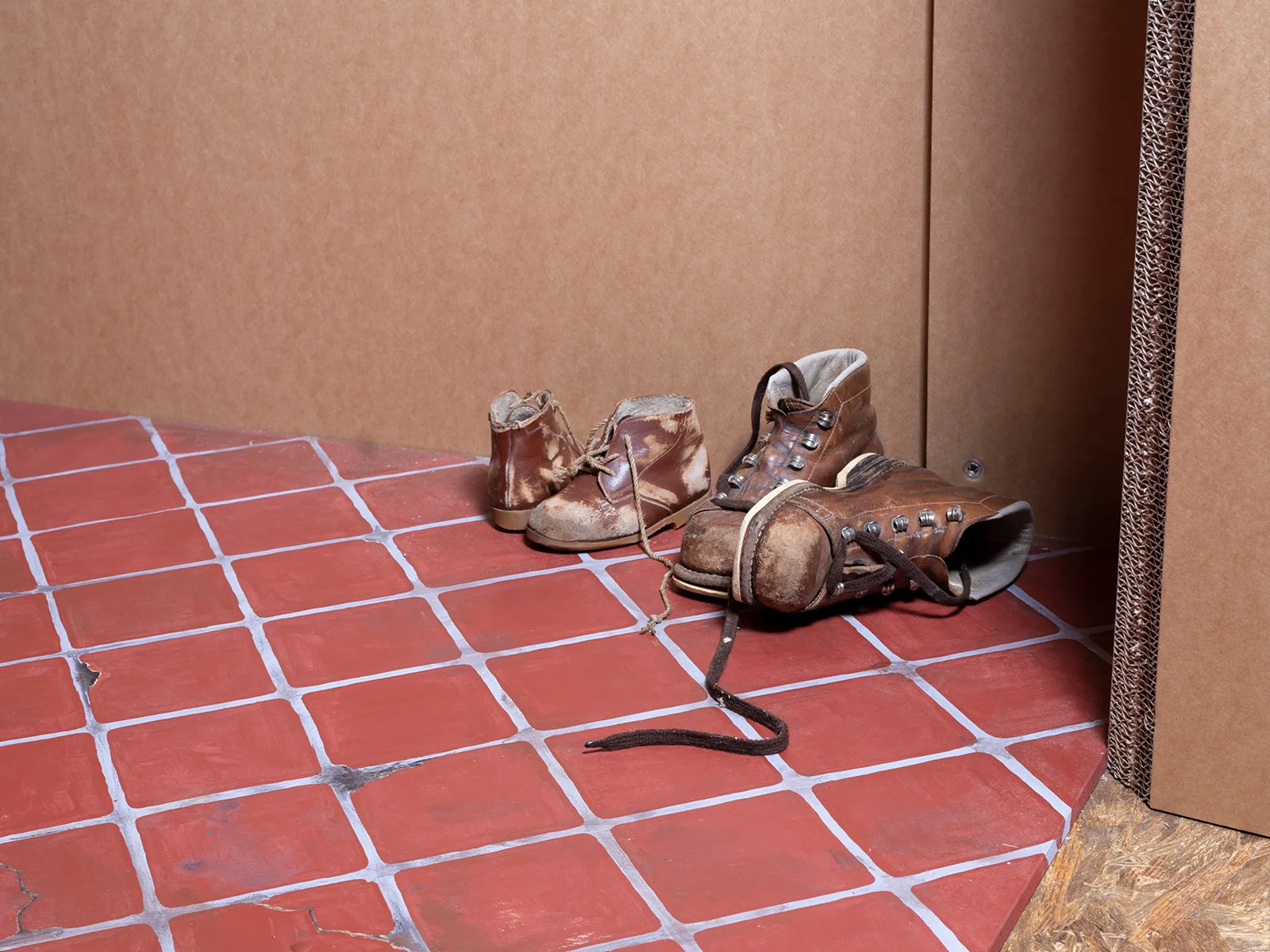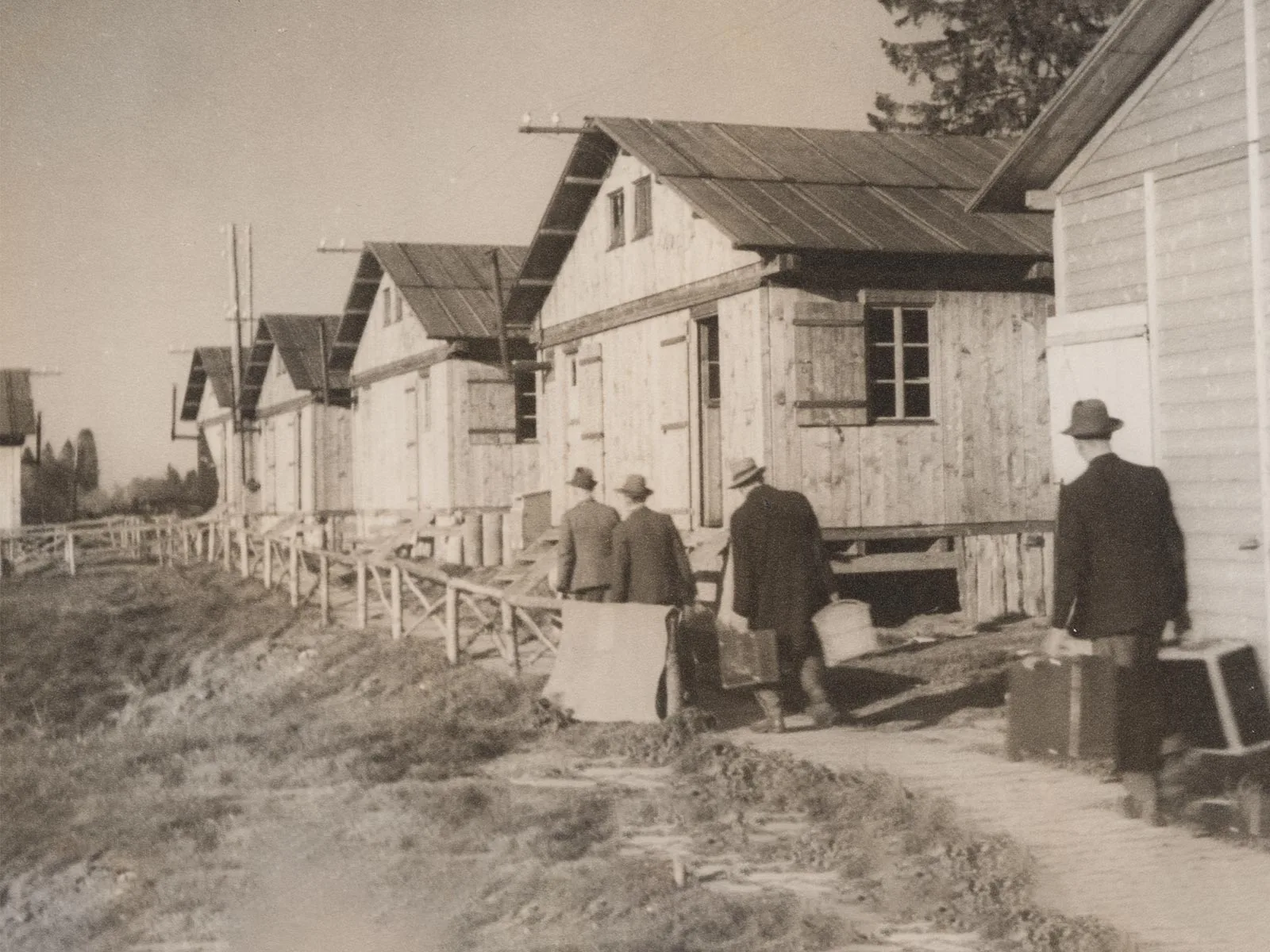
A newspaper by refugees for refugees
Towards the end of the Second World War, a newspaper was published in Switzerland that was not intended for public distribution yet nevertheless circulated throughout the country. It was written by emigrants in the internment camps.
Über die Grenzen was a newspaper by refugees for refugees. The emigrant publication was not openly on display anywhere, could not be bought at any kiosk, and yet still found its way into the hands of people around the country. “Until now, we have been allowed to think what we wanted to write; now, we want to write what we think,” says an editor, working in the internment camp at Wallisellen, in the introduction to the first issue in November 1944. The journal’s authors were scattered across Switzerland as the more than 40,000, mostly stateless, refugees tolerated by the system had been consigned to labour and internment camps in literally every part of the country.
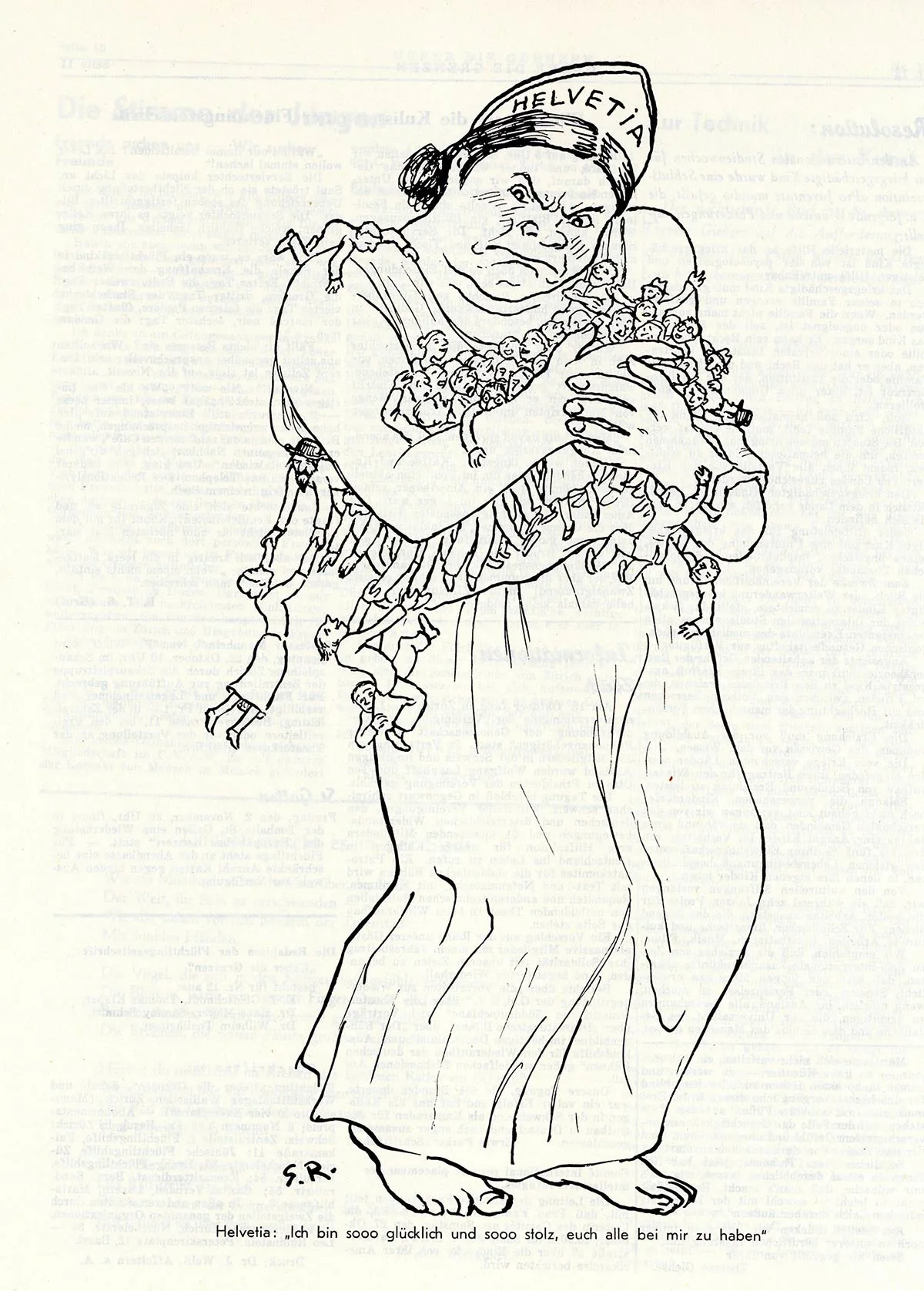
Thus, after all the years of silence, the need for a newspaper as a platform for intellectual expression could be satisfied. Or, as the opening lines on the front page of the first issue put it: “Dawn is breaking, the shadows of the night are giving way. Paths are becoming visible.”
The future cultural elite of the GDR
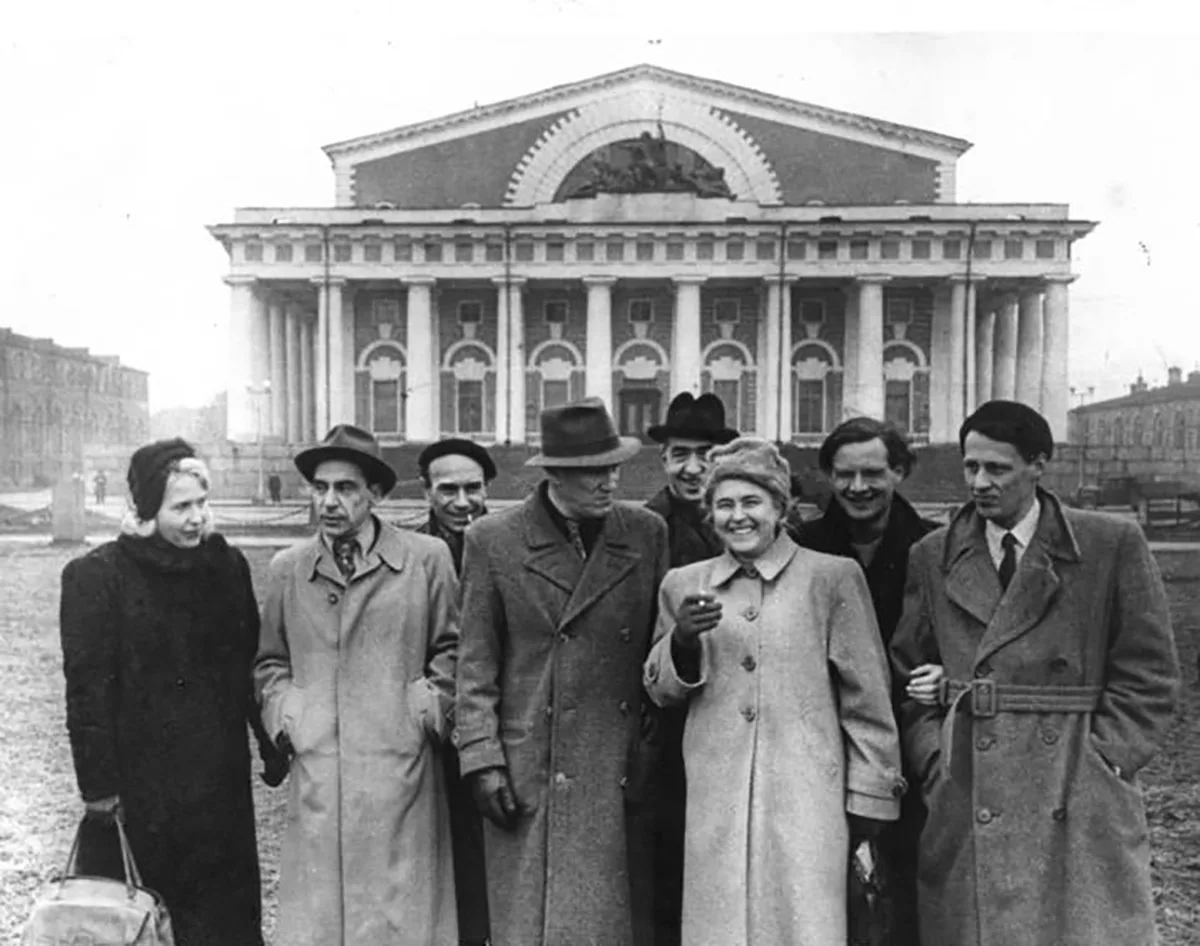
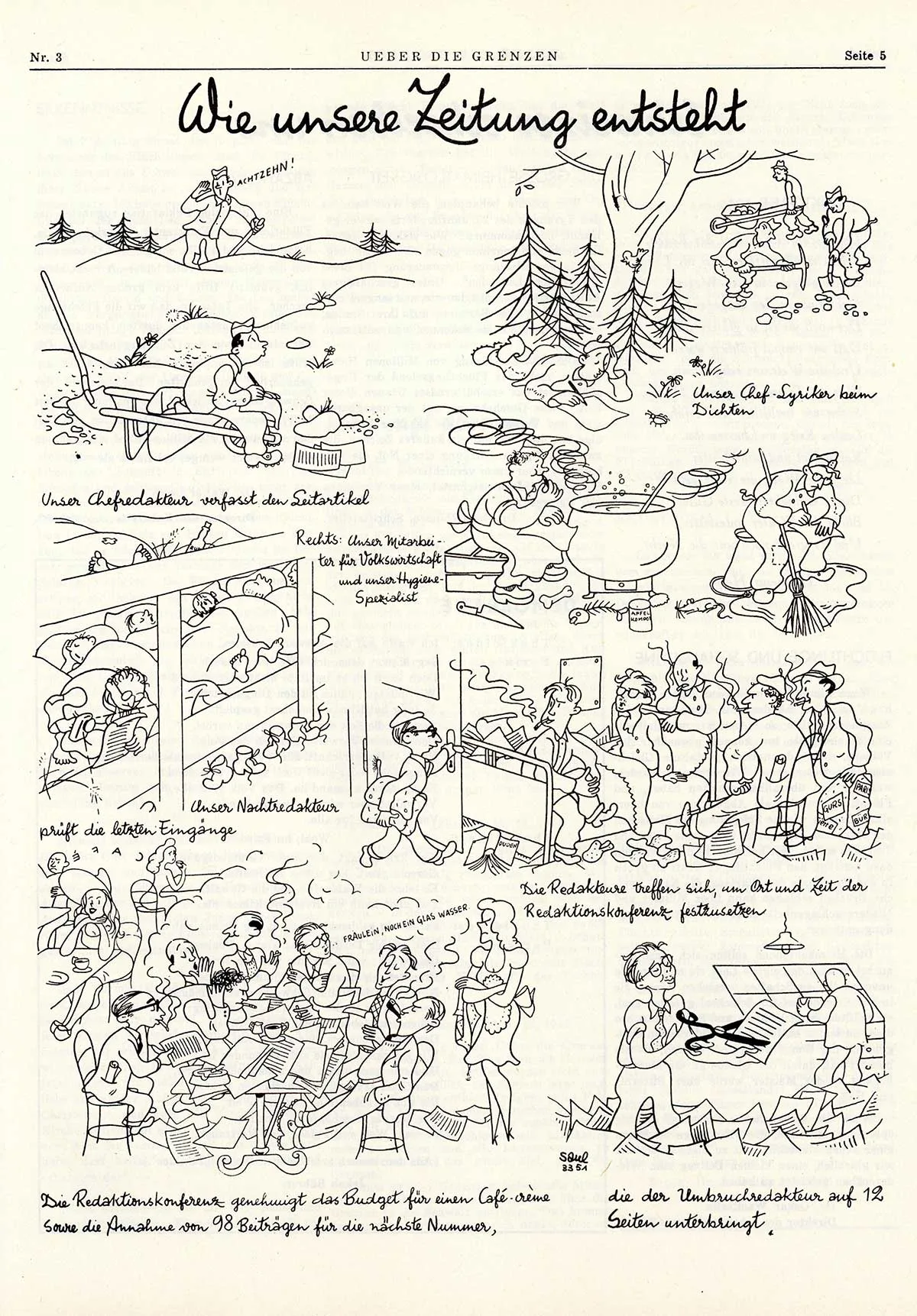
Given the precarious prospects in a Europe that stood in ruins, the editors could not be expected to produce an introspective literary magazine. Their main concern was to shore up the self-confidence of the displaced persons and to provide them with an outlet for discussing their future. Yet despite the many letters it received, the articles giving advice and the controversial debates on its pages, Über die Grenzen did much more than that. In his commentary on a facsimile issue of the newspaper published in 1988, exile researcher Werner Mittenzwei writes: “It succeeded in making a political and literary culture visible. For today’s readers, it is an impressive document revealing people’s hopes at the end of the war and their readiness to help create a better world.”
